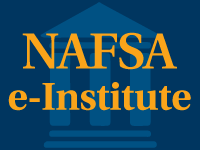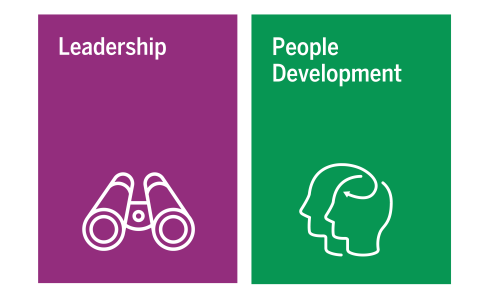The NAFSA Executive Internationalization Leadership e-Institute (e-Institute) provides executive-level internationalization leadership training for international education professionals responsible for implementing internationalization at their institutions. The program is designed for leaders with more than three years of experience who are currently in an internationalization leadership role at institutions of higher education in the United States and around the world.
The e-Institute is presented by the most experienced team of NAFSA Program Faculty–all global campus internationalization experts. Our faculty have managed internationalization initiatives, published extensively, and presented at numerous workshops, forums, and conferences. Participants will be able to link theory to practice. Individualized coaching and assistance will enable each participant to develop success strategies unique to their needs.
Applications for the 2025-26 cohort are now closed. The next application cycle for the 2026-27 cohort will open in Spring 2026.
2025-26 e-Institute
The 2025–26 e-Institute will began on July 28, 2025 and will end on July 31, 2026. An orientation session was held on July 23, 2025 and a recording will be distributed to participants.
| Member Type | Early Bird Apply and register by June 16 | Regular Apply and register on or after June 17 |
|---|---|---|
| Member | $2024 | $2249 |
| Nonmember | $2699 | $2999 |
Members save a minimum of 25% on this program. Not a member? Learn more about the benefits and value of NAFSA membership.
Available Discounts and New Benefits
NAFSA is excited to offer the following special discounts and benefits for the 2025-26 e-Institute cohort participants. NAFSA will verify applicants' eligibility during the application process. Discounts and benefits being offered include:
- 10% discount for early bird registration. Apply and register for the e-Institute program before or by June 16, 2025 to receive this discount.
- 10% discount for accepted applicants current working at community colleges.
- 10% discount for accepted applicants who previously completed the NAFSA Academy and/or Management Development Program (MDP). This discount only applies once and participation in multiple programs does not increase the discount percentage.
- 45% discount for accepted applicants who are NAFSA members and citizens and residents of United Nations-designated Least Developed Countries.
- Complimentary conference registration for the NAFSA 2026 Annual Conference & Expo in Orlando, Florida.
- Discounts can be combined as eligibility is verified and are not transferable.
e-Institute Participant Testimonials
"Being able to tap into the incredible expertise of our knowledgeable and generous faculty while engaged in this thinking is an opportunity I’ll long appreciate."
"I started the e-Institute thinking that it would be a training course, but I soon saw that a new world had opened up. It's not just a course, but access to activities and connections that only NAFSA offers."
"Each aspect of the e-Institute has been designed to ensure that participants gain new skills, knowledge, and competencies that serve the comprehensive and strategic internationalization of their institution."
"I closed several of my own knowledge gaps and I applied the program resources directly to real day-to-day situations that my team and I were encountering."
Read more about the e-Institute program on the NAFSA blog:
NAFSA Leadership Development Programs
NAFSA leadership development programs enable international education professionals to advance at every stage of their career.
- The NAFSA Academy for International Education is an intensive yearlong training program for new professionals with extensive networking opportunities designed to meet participants’ individual learning goals.
- The NAFSA Management Development Program guides participants as they learn key skills needed to become more effective and efficient international education managers.
- The NAFSA Executive Internationalization Leadership e-Institute is a yearlong executive-level training program for international education professionals responsible for implementing internationalization at their institutions.
Become a NAFSA Member
NAFSA is the largest and most diverse association serving international educators worldwide. Membership provides you with unmatched access to best-in-class programs, critical updates, and essential learning resources. Explore the benefits of membership.






